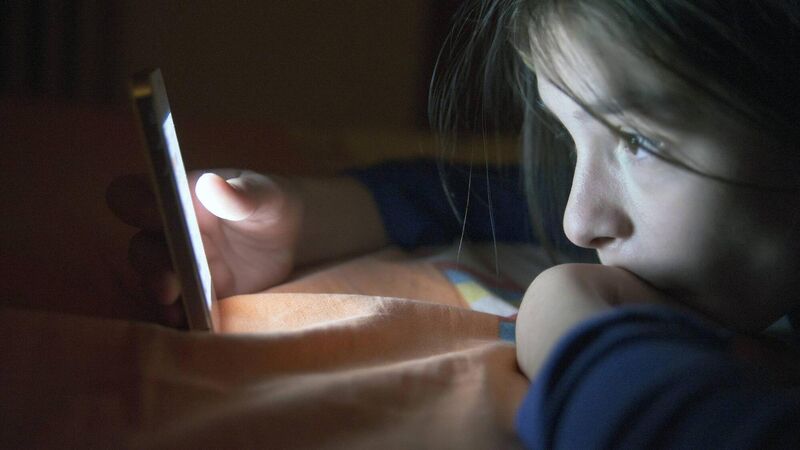Children's screentime could be linked to cell damage and early onset of puberty

The study by Aylin Kilinc Ugurlu links exposure to blue light (which is emitted by phones and similar devices) with cell damage in rats, and suggests a similar link in humans. Stock picture
Regular use of smartphones, tablets, and other devices emitting blue light may alter children's hormone levels and increase the risk of earlier puberty, according to a new study.
Blue light is known to reduce sleep quality in children and adults, as it inhibits the evening rise in levels of melatonin which prepares the body for sleep.













